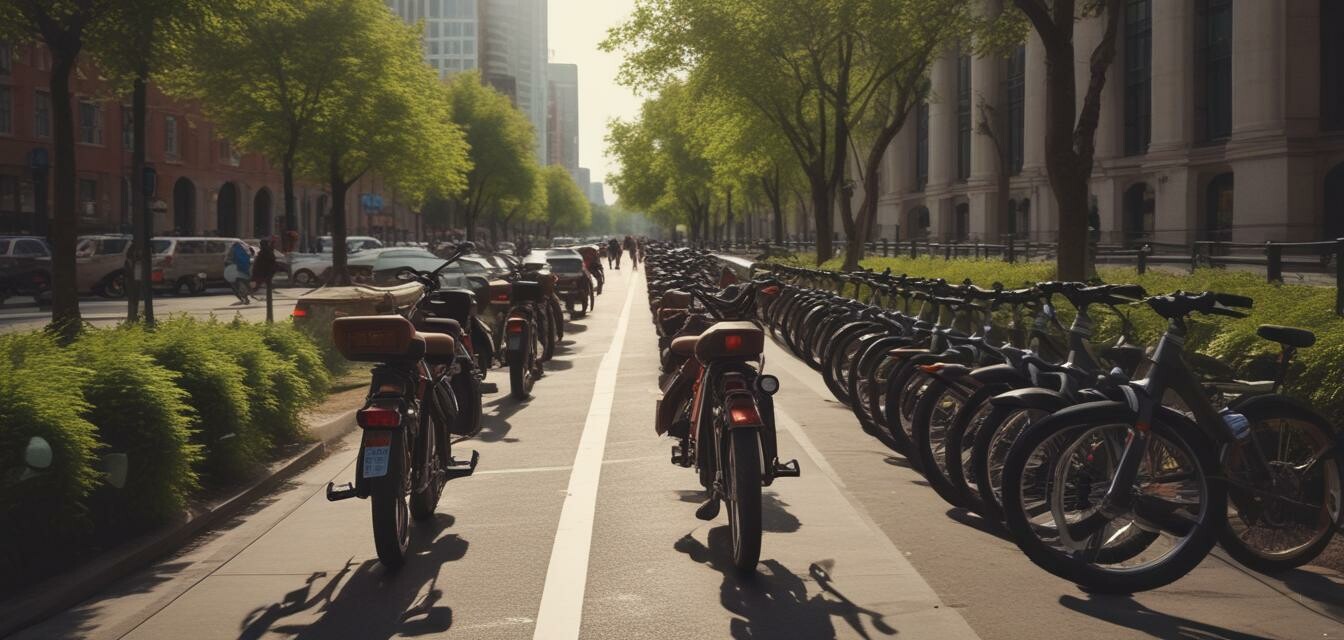
The Impact of Electric Bikes on Urban Traffic
Key Takeaways
- The rise of electric bikes is reshaping urban traffic patterns.
- E-bikes can alleviate congestion and reduce travel time for commuters.
- Electric bikes promote a healthier lifestyle and greener urban environment.
- Urban areas are increasingly accommodating e-bikes through infrastructure changes.
- Understanding the impact of e-bikes is crucial for future urban planning.
As cities continue to expand, urban traffic congestion has become a pressing issue. However, the growing popularity of electric bikes presents a fascinating solution that could reshape how we navigate our cities. This article delves into the impact of electric bikes on urban traffic patterns and how they contribute to reducing congestion.
Understanding Electric Bikes
Electric bikes, or e-bikes, are bicycles equipped with an electric motor that assists with pedaling. This feature makes them an attractive alternative for commuters and recreational cyclists alike. Here's a breakdown of their components:
| Component | Description |
|---|---|
| Electric Motor | Provides assistance while pedaling, making rides smoother and less strenuous. |
| Battery | Powers the motor, typically offering a range of 20-50 miles on a single charge. |
| Controller | Regulates power delivery from the battery to the motor. |
| Frame | Designed similar to traditional bikes but often heavier to accommodate the added components. |
How E-Bikes Are Influencing Urban Traffic
The integration of electric bikes into urban commuting is causing significant shifts in traffic dynamics. Below are some primary ways e-bikes are influencing traffic:
- Decreased Car Dependency: E-bikes offer a viable alternative to cars, facilitating short trips that would otherwise contribute to congestion.
- Improved Commute Times: E-bikes can often navigate through dense traffic more efficiently compared to traditional vehicles.
- Promotion of Mixed Transportation: E-bikes encourage commuters to integrate multiple forms of transport, including public transit for longer distances.
Traffic Congestion Benefits
The benefits of electric bikes go beyond just the individual cyclist. They have broader implications for urban traffic:
| Benefit | Description |
|---|---|
| Reduced Congestion | With fewer cars on the road, traffic congestion can decrease significantly, benefiting all commuters. |
| Lesser Pollution | Fewer cars mean lower emissions, contributing to improved air quality in urban areas. |
| Enhanced Road Safety | Fewer vehicles can lead to a safer environment for cyclists and pedestrians. |
E-Bikes and Urban Infrastructure
As the demand for electric bikes grows, cities are adapting their infrastructure to support this trend. Here are a few ways urban areas are evolving:
- Development of dedicated bike lanes that accommodate e-bikes.
- Increased availability of bike racks and secure parking.
- Integration of e-bike sharing programs to promote access.
Challenges to Consider
Despite the benefits, the rise of electric bikes presents certain challenges:
Pros
- Promotes sustainable transport options.
- Enhances mobility for various demographics.
- Encourages physical activity.
Cons
- Potential for increased accidents if safety measures aren't in place.
- Requires investment in infrastructure.
- Impact on traditional bike retailers.
The Future of Urban Biking with E-Bikes
Looking ahead, the impact of electric bikes on urban traffic holds promise for a greener and more efficient transportation system. As cities continue to embrace this change, it is essential for urban planners, policymakers, and citizens alike to remain engaged in discussions about the future of cycling infrastructure. Furthermore, efforts in education about e-bike safety and cyclists' rights will be vital in promoting harmonious coexistence on the roads.
Conclusion
In summary, the rise of electric bikes is changing the urban landscape, providing significant benefits not just to cyclists but to the entire traffic ecosystem. Embracing this trend can lead to reduced congestion, improved air quality, and an overall enhancement of urban life. To explore more about how to transition effectively into an e-bike-friendly city, you might find our guides helpful in the Buying Guides section.
Stay updated on emerging trends about electric bikes affecting traffic in urban areas by following our News & Trends category.